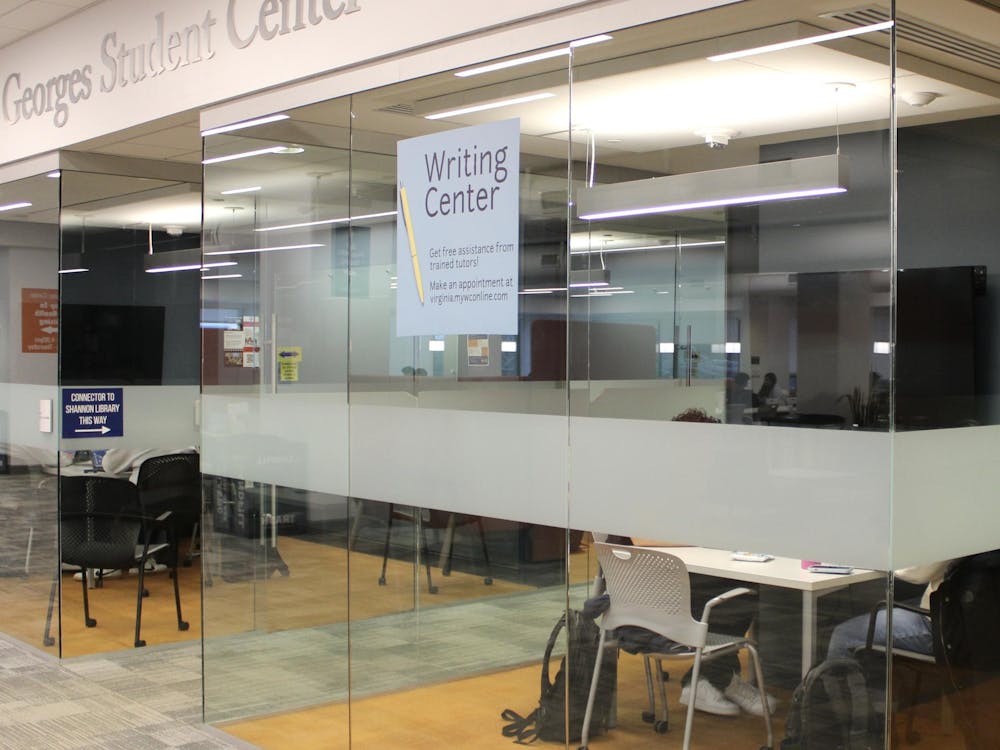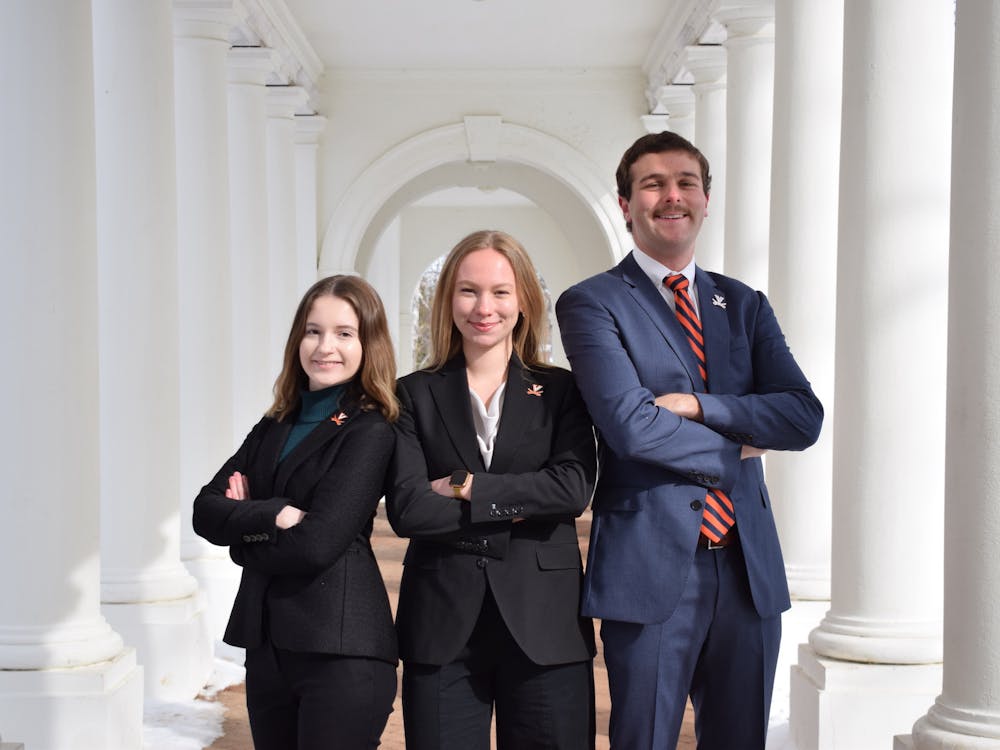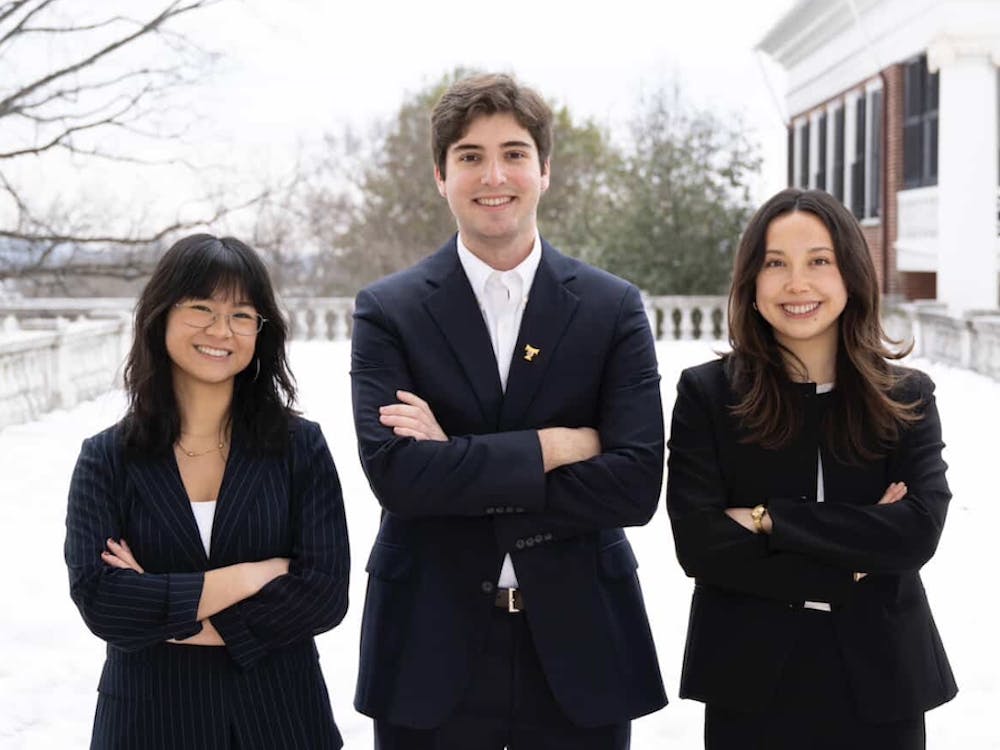Five Living Wage Campaign representatives met with University President Teresa Sullivan 7 a.m. yesterday as the campaign's hunger strike entered its 10th day.
Following the meeting, the wagers delivered a speech on the Rotunda steps in which Graduate Arts & Sciences student David Flood, one of the campaign representatives, said "no real progress has been made."
The campaign announced plans to continue the hunger strike, now in its 11th day. About 19 students are currently striking, and 25 students total have participated in the strike, though som have been forced to stop fasting for medical reasons.
Flood said "no real negotiation" took place in yesterday's meeting, but added the meeting gave both sides a chance to outline their respective positions. Ultimately, however, the administration took no concrete steps to meet the demands of the campaign.
"This morning's meeting was collegial and ... everyone listened to each other's opinions and concerns," University spokesperson Carol Wood said. "In the end they agreed to continue the discussion at a meeting to be held later this week."
Two graduate students, two faculty members and one University employee comprised the five campaign members who met with Sullivan and her staff. Chief Operating Officer Michael Strine, Chief Student Affairs Officer Patricia Lampkin, Chief Human Resources Officer Susan Carkeek and Psychiatry Prof. Maurice Apprey, a dean in the Office of African-American Affairs, also attended the meeting.
Wood said the administration had thought the negotiating team for the campaign would be more representative of its membership and was disappointed no undergraduates attended the meeting.
The University is holding fast to the positions outlined in a statement by the then-Virginia Attorney General and current Gov. Bob McDonnell in 2006 arguing the power granted to the Board of Visitors "does not include the authority to require a minimum or living wage requirement that must be paid by private contractors and vendors."
Sullivan also said in a Feb. 23 speech to the Board she is reluctant to agree to the Living Wage campaign's demands because she does not have the power to grant them.
"We might not be able to keep a pledge to peg wages to inflation," Sullivan said. "We have not been able to do so for the past four years; as you know, our employees have lost ground because of the state-wide pay freeze."
Sullivan also expressed concern about the health of the protestors who have chosen to hunger strike.
"With regard to the Living Wage Campaign, I believe all of us regret that some protestors have resorted to a hunger strike, choosing the risk of doing harm to themselves," Sullivan said.
Lampkin sent a letter to hunger strikers Friday asking them to resume eating to allow for a more clearheaded discussion at yesterday's meeting.
Despite disapprobation from the administration, students continue to join the strike, including fourth-year College student Aneesha Rao, Student Council's vice president for organizations, and third-year College student Mathias Wondwosen, who placed second Friday in his bid for Student Council president.
"I've lost 14 pounds; it has really taken its toll on me," Graduate Arts & Sciences student Tim Bruno, one of the original hunger strikers, said. "I'm exhausted and I have no energy. I pretty much live [in the space] in front of the Rotunda, my apartment, and my classes."
Bruno plans to continue to strike as he said he is "hungry, but hopeful."
Three students from the Living Wage Campaign at the College of William & Mary attended yesterday's rally. William & Mary's branch of the campaign has existed for 10 years, and last April campaigners succeeded in gaining a 1.5 percent increase in wages for directly hired employees. The raise followed a sit-in in which police arrested five students, giving them citations but not taking them to jail.






